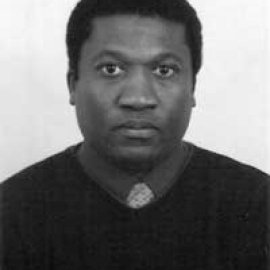Contemporary history, Coimbra University, Portugal

Octobre 2014 - Juin 2015
Julião SOARES SOUSA, was born in Guinea-Bissau. He graduated in History (1991), completed is Master Degree in 1997 and PhD in 2008 at the University of Coimbra in Portugal. He was Guest Professor in a Master's Program in African Studies in the Department of Anthropology at the University of Coimbra and was Guest Assistant Professor in a Master's Program in Security, Defense and Conflict Resolution and in Post Graduation in Criminology at the High Institute of Sciences of Information and Administration in Aveiro (Portugal). His current research interest is focused on Colonialism, Anti-colonialism and National Identities; State Building in Africa, especially in the former Portuguese colonies, and Modern and Contemporary History of Africa.
In 2011, he was awarded the prize Foundation Calouste Gulbenkian for Modern and Contemporary History of Portugal by the Portuguese Academy of History, for his book Amílcar Cabral (1924-1973). Vida e morte de um revolucionário africano (‘Amílcar Cabral (1924-1973). Life and death of an African revolutionary’).
"The Sino-Soviet split and its implication in the liberation movements of the Portuguese colonies in Africa"
The end of the Second World War gave rise to the so-called Cold War. However, nothing could predict that only a few years later would erupt within the communist bloc a serious rift between China and the URSS which divided the international communist movement around the world and affected the anti-colonial struggles in the African Portuguese colonies. With this research project at IAS-Nantes, Julião SOARES SOUSA intend to address, among other issues, the evolution of the Sino-soviet split by trying to examine into which extend it affected the struggle for national liberation in the Portuguese colonies in Africa. He will apply to certain historical approach and operative concepts like “contradiction”, “leadership”, “neutrality” and “non-alignment” that will help us in pursuing the proposed objectives. In doing so, we will focus also on the emergence of factions and wings within the liberations movements due to the overt interference of the two schismatic countries in their internal affairs. Our idea is to check among other issues how they conditioned their support to the anti-colonial liberation movements with the assumption of certain positions under the split.